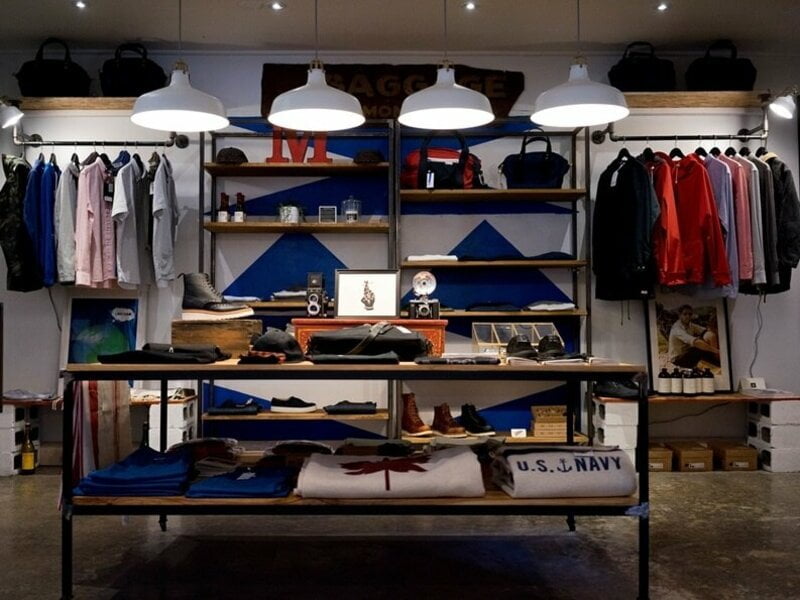Reinier advises national and international companies
reinier.russell@russell.nl +31 20 301 55 55From 1 July 2023, manufacturers, importers and retailers of textiles will be responsible for the collecting and recycling of their products. They must also report how they have fulfilled this Extended Producer Responsibility. What do manufacturers, importers and retailers have to bear in mind in the future?

As per 1 July 2023, the Extended Producer Responsibility for Textiles Decree will take effect. This means producers and importers as well as retailers and brands in the fashion industry will be co-responsible for the waste management of the products they market. This is also known as producer responsibility. The legislation applies to all parties that put clothing on the Dutch market.
The Extended Producer Responsibility (EPR) is an important step to circularity in the fashion industry with textiles being better recycled and more reused. This requires efforts of all stakeholders. Therefore, the Ministry of Infrastructure and Water Management introduces the EPR.
Manufacturers of consumer clothing, bed, table and household linen as well as workwear that offer a product for the first time in the Netherlands will be responsible for the collection, recycling, reuse and the waste phase of the products they put on the market from 1 July 2023. Up until now, municipalities were responsible for the collecting of cast-off clothing/textiles of the residents. From 1 July 2023, the producers of textiles will bear this responsibility. Producers are considered to be the companies that bring textiles on the market for the first time. This may thus include brands, producers as well as retailers.
Textile manufacturers outside the Netherlands (including online providers) are subject to the EPR if they supply textiles to the Netherlands. They are required to appoint a (legal) person established in the Netherlands as authorized representative. This representative ensures that the manufacturers meets its obligations under the EPR.
If you put new textiles on the market (especially clothing and household textiles) on 1 July 2023, you will have to make this known from 1 July and by 12 August 2023 using a form on the website of the government. In doing so, producers have to indicate the quantity and type of textiles they expect to put on the market during the next 12 months. This notification requirement also applies if you market products later than 1 July 2023. In that case, you have a period of 6 weeks to make this notification.
Once notification has been made to the government, a report must be issued each year. This report has to clearly indicate how the manufacturer has met the EPR obligations and how many products were put on the market in the past year. This also includes products that were returned. The report has to be submitted annually by 1 August.
Producers have to ensure a suitable collection system for textile products. This must be available all year and must not be restricted to areas where it is most cost efficient. Also, the collection system must be free for those wishing to cast off textile products.
In addition, producers must take measures for the use of recycled raw materials in their own products. The law prescribes which percentages of the weight of the textiles sold must be made suitable for:
These percentages will increase gradually from 2025 to 2030. Each individual manufacturer has to meet these percentages and must therefore be able to prove it.
As it is not easy for individual producers to meet the requirements on the basis of the EPR Decree, manufacturers can also choose to join a collective approach. This can be done by joining a producer organisation. This organisation will then be responsible for meeting the requirements on behalf of the producer. The organisation will take over the notification and collection requirement and ensure that sufficient recycling and reuse takes place. Currently, there is one producers’ organisation offering such services, Foundation EPR Textiles (Stichting UPV Textiel), a cooperation of the industry organisations Modint and INretail.
Do you have any questions about legal issues concerning fashion and luxury goods or retail? Please contact us:
The use of general terms and conditions is something companies can no longer do without. Contracting parties refer to their own general terms and conditions in small print, often containing favorable clauses for their own benefit. But what is the power of general terms and conditions? And what should be considered when using them?
A new EU regulation requires anyone wishing to import cultural goods into the EU to have an import license or submit an importer’s declaration. When is which type of document required? How does it affect art dealers, galleries, auction houses and collectors, both inside and outside the EU?
An important way to prevent an assignment contract from turning out to be an employment contract after all is to use and correctly implement the model agreements on the website of the Dutch Tax and Customs Administration. However, from 1 January 2024, all models that partially or completely assume the possibility of substitution will expire. What does this mean for principals and contractors?
The WHOA makes it easier for a company facing bankruptcy to avoid bankruptcy. This can be done through a binding agreement with all creditors, even if they do not all agree to the arrangement. What rights do creditors have in WHOA proceedings?
On 12 June 2023, the new EU General Product Safety Regulation entered into force. As of 13 December 2024, products must comply with this regulation. What are the consequences of the new Product Safety Regulation? Which entrepreneurs should start taking measures now?
Buildings may be timeless but every now and then work will have to be carried out in order to prevent decay. Lessees and lessors have different rights and duties, depending on whether the work can be considered as renovation or (urgent) maintenance.